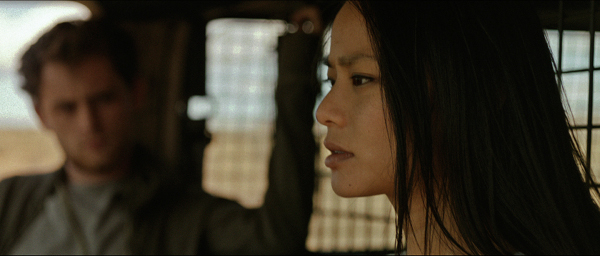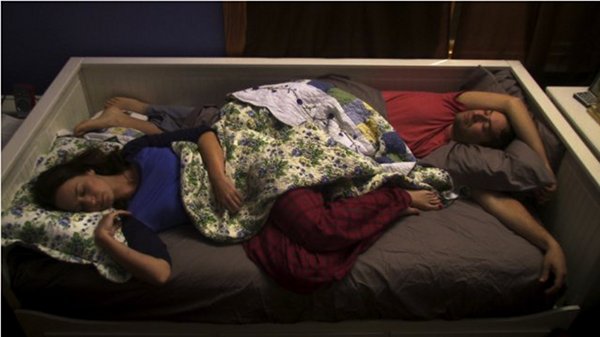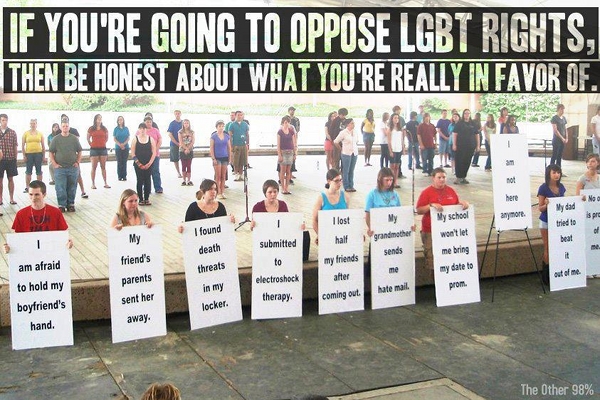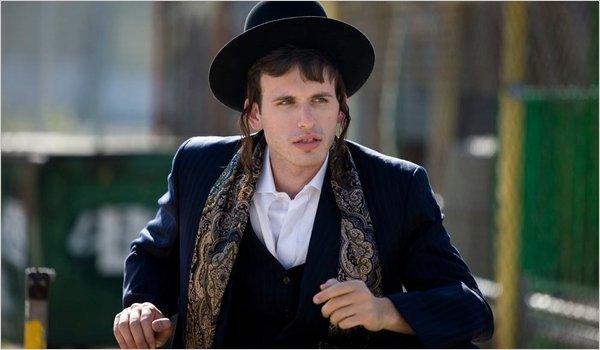Film Essent Archive for May, 2012
Digital Distribution Revolution

 Community. Collaboration. Crowdfunding. Distribution.
Community. Collaboration. Crowdfunding. Distribution.
There’s been a growing sense over the past few years that the individual artists who make up the indie film community are connecting to the idea that one way you keep working and making films in a tight economy is to keep your overhead low by forming filmmaking collectives, little pockets of talented film folks working together to get each others projects done. People aren’t sitting around, wringing their hands and waiting for some mythical rich dude on a white horse to come sweeping in to save the day and fund their films, they are just doing whatever they have to do in order to get them made. The advent of DSLR has made it possible for anyone with a 7D and a Macbook loaded with FCP to shoot and edit a film, and this whole spirit of community around filmmaking – you help me get my film made, and then I’ll help you make yours – makes it even easier to shoot a lot of films on a little money.
And all this is great, but the next big question, to which we’re starting to see some answers, is: What do you do with that film once it’s made? How do you get it seen? Do you spend a small fortune on fest entry fees for the crap shoot chance that your film might get into a decently large fest and get you some attention? For the even smaller chance that you’ll luck into the lottery draw of a distrib deal, and that said deal won’t be crappy? What does “distribution” mean now as it applies to indie film, and what will it mean a decade from now?
This morning indie producer Ted Hope tweeted a link to this excellent piece by Brian Newman about “disruptive innovation;” that is, what happens when someone operates in a space that bigger companies devalue (or simply haven’t yet seen the value of).
In his piece, which you should read if you haven’t, Newman talks about four YouTube celebs who are among the most popular subscribed names in that popular space, as an example of how some folks are rejecting the long-held indie filmmaking model for distribution and taking advantage of the current landscape to get their work seen by way more people than they would otherwise. These four people, Newman notes, are getting their work seen by millions, even billions of viewers, simply by taking advantage of YouTube and social networking to extend their reach. It’s a possibility that didn’t even exist a decade ago, this idea of distributing your work through a channel like You Tube.
Newman’s article is relevant and interesting, but it there’s a comment on the piece from Michael R. Barnard that I think makes the point even better and more succinctly: The real digital revolution is about distribution, not just creation. Distribution is the space where disruptive innovation is going to make the biggest shift in the landscape of independent film over the next decade. So the question becomes: How do indie filmmakers take advantage of opportunities to leverage those devalued spaces? So the big guys largely control entry into the mainstream theatrical space. So what? How can you work around that, over it, under it, or through it to bypass traditional entry points and get your work directly to your audience? How can you be a part of redefining what distribution looks like? Because the landscape is changing rapidly.
 Consider: Right now, I know of at least two films that are potential bellwethers for how ready we are to accept this shift, this new wave of indie film distribution. Actor-turned-director Matthew Lillard rejected traditional distribution for his directorial debut, Fat Kid Rules the World, and has instead opted to self-distribute to get his film seen by the world; he’s using a crowdfunding campaign through Kickstarter to made it happen. When he was in Seattle for the film’s SIFF screening, he talked about how none of the majors really “got” how to market a film like Fat Kid; it’s a film in which the two main characters are a boy who ate away his grief over his mother’s death and his friend, an unloved, unwanted, homeless teenage drug addict. There’s no hot sex, no gratuitous nudity, no T&A, no masturbating with warm pastries (I think cleavage makes one appearance, and that’s in a brief fantasy sequence).
Consider: Right now, I know of at least two films that are potential bellwethers for how ready we are to accept this shift, this new wave of indie film distribution. Actor-turned-director Matthew Lillard rejected traditional distribution for his directorial debut, Fat Kid Rules the World, and has instead opted to self-distribute to get his film seen by the world; he’s using a crowdfunding campaign through Kickstarter to made it happen. When he was in Seattle for the film’s SIFF screening, he talked about how none of the majors really “got” how to market a film like Fat Kid; it’s a film in which the two main characters are a boy who ate away his grief over his mother’s death and his friend, an unloved, unwanted, homeless teenage drug addict. There’s no hot sex, no gratuitous nudity, no T&A, no masturbating with warm pastries (I think cleavage makes one appearance, and that’s in a brief fantasy sequence).
Fat Kid is a warm, honest, compelling film, and it’s an impressive directorial debut. Lillard thinks it’s a film with an important message for young people, and he thinks he can get it out to more of them by doing it on his own than through a distributor, and he’s probably right. Honestly, I do think Fox Searchlight, had they been willing to put the effort behind Fat Kid that they have with films like Little Miss Sunshine and (500) Days of Summer and Juno, probably could have really done something with it. It feels like a major ball drop for them not to have picked this up, particularly in the wake of all the publicity over Bully (the film) and bullying (the ongoing problem among our youth today) and, perhaps more to the point, given that Fat Kid really is a solid film. But I’m interested to see how Lillard does with his effort to take his baby out into the world on his own, and I completely admire his strong desire not to compromise his film and its message by giving it any less than the distribution he feels it deserves to have.
 Over on the documentary side of things, the huge news this week is that Oscar-nominated documentarians Rachel Grady and Heidi Ewing (Jesus Camp, Boys of Baraka) have also chosen Kickstarter as the platform for raising the funds they need to self-distribute their latest film, Detropia, a piercing examination of the Motor City’s rapid deterioration from being one of the fastest-growing cities in the nation to a city that’s bleeding population and falling apart. In the economy we find ourselves mired in, Detropia is perhaps one of the most relevant films to come out of the past few years of documentary filmmaking (and as an aside, I kind of want to take Detropia, Charles Ferguson’s No Way Out and Inside Job, and Alex Gibney’s Enron: The Smartest Guys in the Room on tour around the country, showing them to young people so that they can wrap their heads around just how much the grown-ups in charge have completely fucked things up for them).
Over on the documentary side of things, the huge news this week is that Oscar-nominated documentarians Rachel Grady and Heidi Ewing (Jesus Camp, Boys of Baraka) have also chosen Kickstarter as the platform for raising the funds they need to self-distribute their latest film, Detropia, a piercing examination of the Motor City’s rapid deterioration from being one of the fastest-growing cities in the nation to a city that’s bleeding population and falling apart. In the economy we find ourselves mired in, Detropia is perhaps one of the most relevant films to come out of the past few years of documentary filmmaking (and as an aside, I kind of want to take Detropia, Charles Ferguson’s No Way Out and Inside Job, and Alex Gibney’s Enron: The Smartest Guys in the Room on tour around the country, showing them to young people so that they can wrap their heads around just how much the grown-ups in charge have completely fucked things up for them).
About their decision, Ewing noted, “What’s really compelling is how you get the feeling everyone in the community is coming out to help us because they’re going through the same thing. We stopped to really investigate who’s raising money and how are they doing it? This has really brought us back to earth. We’re going to be taking a very big interest in everyone else’s projects. If we don’t support each other’s projects, who’s going to do that?”
Which is exactly the point, right? What’s going on in the indie film world right now is this profound shift in the idea of what it means to be a filmmaking community. How do we support each other in making the work, and how do we support each other in getting the work seen? We do it by forming filmmaking collectives in which people work, essentially, for little or nothing on each other’s projects, to get the films made. By filmmakers supporting each other’s crowdfunding campaigns to raise funds to get films made to begin with, and, perhaps more importantly, distributed once they’re made.
Ewing added, “The fear of entry has gone down, the technology has made it more democratic and accessible, and now it’s about distribution. We have to stop just relying on this fantasy that some holier than though, smarter than you distributor is going to land in your living room and just take it on for you. Even with a distributor you have to do a lot of work, a lot of brainstorming, you have to come to the table with ideas. You still get more press for even a small release in theaters than for television, even now. But there are eyeballs out there, there’s an audience for this work, you just have to work to find them.”
The other thing all this ties into, of course, is something that people like Ted Hope and Christine Vachon have been preaching for years: Independent filmmakers need to get that it’s about business, not just art. Or at least, that there’s an art to the business side of film, and that more filmmakers need to wrap their heads around this concept. Filmmakers should be thinking from the time they come up with an idea for a film about budget, and that means more than just “we’re going to spend X dollars making this film and max out our credit cards.” It means, you need to have a plan before you start making your film for how you are going to make back what you invest in it.
Too many indie filmmakers just go at it flailing blindly, with zero idea of who their audience is and how they’re going to reach them. Is it possible to control spending and losses to the extent that you can guarantee you’ll always make back what you invest in making a film? Probably not, but if you’re smart and looking at both what’s going on now, and what direction things are likely to take in the near future, you can maybe maximize your chances of finding your audience and being able to continue working in this risky and unstable field.
The barrier is, many filmmakers are so invested in thinking of themselves purely as artists that they can’t see that they need to also develop skills in the business side. Does that mean that we need to be mercenary in creating art that “sells?” Of course not. But I believe there is a way to both be true to your artistic vision and to reach the audience that will help support that vision. Ewing sums this idea up thusly, “There’s no reason that we artists have to be silly and stupid about business and there’s nothing crass about it. If a deal stinks, don’t take it, it’s not a requirement, just so you can tell your friends your got official distribution. Filmmakers are notoriously not great at the business side of things and that has to change. People have to be take charge of their own projects. There’s insecurity that comes with making a piece of artwork, and filmmakers have to get past that. The networks need content, audiences want to be moved by stories. There’s a purpose to what we do, there’s a demand, a hunger for a well told story. People are turning to non-fiction films to a greater degree than they ever have before, they’re looking to us to tell those stories.”
I’ve been considering a post that Ted Hope made at his blog a while back, in which he said that a potential film should have at least 5,000 “followers” – that is, people who are legitimately interested in seeing it get made and watching it once it is made – to even get greenlit. 5,000 followers seems a very tall order for any indie filmmaker to achieve before a film’s even been shot, but Ted’s point is that filmmakers should be thinking before they start actually making a film who they’re making it for and how to interest that audience in their film. You don’t need to necessarily aspire to making huge Hollywood tentpoles, but you do need to think about your film as something other than a giant black financial void. At the very least, you want to have a plan that allows you to continue working in filmmaking and not flipping burgers or answering phones in a cubicle, right?
There’s certainly a part of me that longingly wishes I didn’t have to think about this side of things, but most of me has accepted the realitythat this transition to filmmaking is going to require me to call on not just the artistic skills of writing and directing and creating, but also on the business skills I thought I left behind when I walked away from the corporate world 13 years ago to forge new path for myself in this industry. I made my short film, Bunker, as a first step in transitioning into filmmaking as my primary occupation, but my intent is also to keep writing along the way, to share the things I learn – what works, where I trip up and fail. We spent our own money making Bunker, because I viewed that film as boot camp, an investment in learning some things that I needed to learn about being a director on a film set and about translating a story from idea to script to movie. We have a couple of feature scripts we’re developing right now, and the plan is to be filming one of them in 2013. But as I’m working on these scripts, I’m not just thinking about the script itself, I’m thinking about who the audience is and how to reach them. I’m thinking about crowdfunding as a marketing tool. I’m thinking about distribution.
Ewing sums this perspective up nicely:
“In the future we’re going to start thinking about this before we even start production, trying to raise an extra $100K up front and holding that back for distribution. We started out being “Oh shit, we’re gonna have to do this ourselves,” and then it became, “Okay, we’re doing this ourselves!” and we got excited about it and started researching and talking to people and realized how much we didn’t know. Where have we been that we didn’t realize how quickly everything has changed? Now that we’ve launched this campaign we’re like 24 hours into it and we’re getting all this support from the filmmaking community, people making pledges and sending us supportive notes, and it’s been amazing.”
1 Comment »SIFF 2012 Dispatch: ShortsFest Weekend
 Here we are, already at the halfway mark of this year’s Seattle International Film Festival, and the days have gone by in a blur. I’ve been covering this year’s fest in “more of a trickle than a flood,” as one friend observed, and that’s certainly true. My short film, Bunker, is in the fest this year, and so my time has been divided between filmmaker stuff and press stuff; it’s definitely been a different sort of fest experience for me, wearing both hats.
Here we are, already at the halfway mark of this year’s Seattle International Film Festival, and the days have gone by in a blur. I’ve been covering this year’s fest in “more of a trickle than a flood,” as one friend observed, and that’s certainly true. My short film, Bunker, is in the fest this year, and so my time has been divided between filmmaker stuff and press stuff; it’s definitely been a different sort of fest experience for me, wearing both hats.
Memorial Day weekend was designated ShortsFest at SIFF, with all the shorts screening in blocks at the SIFF Uptown. Can I just pause a moment here to say how exceedingly happy it makes me that SIFF is all settled in now into their cozy SIFF Film Center on the Seattle Center campus, with one screen and an education center there and three more screens walking distance away at the Uptown? This has become my absolute favorite thing about SIFF this year: being able to park (almost always in one of the two free validated lots for the Uptown) and then spend the whole day at one location, bouncing from screening to screening.
Read the full article »
SIFF 2012 Review: Eden
Much as I admired director Megan Griffiths’ last feature, The Off Hours, when I heard her next project was a film based on a real story about a young girl abducted into the sex trade, who survives by cooperating and allying herself with her captors, I wasn’t convinced that was the best project for the rising director to tackle next. Partly this was because I’d just seen The Whistleblower at last year’s SIFF, and I found that film’s graphic depiction of the sexual and physical torture and abuse of young girls disturbing and gratuitous, and partly it was the question of what value there was in making another film about the illegal sex trade so soon after that one. What more could there be to say?
Turns out, in Griffiths’ capable hands, quite a lot.
The Off Hours demonstrated Griffiths’ keen understanding of subtext and portrayal of relationships and character arc, and she’s used those same skills here to find the angle on this story that would make it reverberate with tension and emotion without being gratuitous or exploitative. On the surface, Eden is about the abduction of young girls who are held captive in the Nevada desert and forced to work in the sex trade; the subtext is that this is a story of survival and the resilience of the human spirit, which Griffiths achieves by keeping her lens squarely focused on Hyun Jae (Jamie Chung, simply terrific here), a 17-year-old girl, renamed “Eden” by her abductors, whose minor moment of rebellion against her traditional Korean-American parents results in her getting abducted into the sex trade, and the complicated moral choices she has to make in order to survive as her situation grows more desperate.
The script, credited to both Griffiths and Richard P. Phillips, firmly keeps the sexual degradation these young girls endure in the shadows of our imagination, rather than voyeuristically serving it up to the audience. We know going in this is based on a true story, that these young girls, roughly aged 12 to 18, were kept in a storage facility and forced to have sex with the kind of men who pay to engage in sex acts with underage girls. It’s a truly reprehensible tale that delves into the murkiest side of human nature, but Griffiths treats her female characters with dignity, respect, and empathy, making Eden a sort of post-feminist perspective on what happened to the real girls these actors represent here.
This smart directorial choice allows Griffiths to focus on her lead character, and to allow Eden’s moral conundrum to serve as the fulcrum around which the story revolves as we see her go from bewilderment to rebellion to a surface acceptance of her circumstances, underscored by a watchful determination to find a way out. How far would you go to survive, if you found yourself caught in a trap? What would you — could you? — do in order to escape? The complexity of Eden as a character requires an incredibly strong and compelling performance by Chung, and she’s more than up to the task here, delivering a career-high turn in this coming-of-age, loss-of-innocence tale.
I suppose I should note that the male characters here, for the most part, are pretty one-note; then again, this is a movie about the kind of men who kidnap and hold young girls captive in order to sell them for sex, and the kind of men who buy young girls to have sex with them. How much is there to say about people like that? The most nuanced and interesting male character here is #2 man Vaughn (Matt O’Leary, who’s having a spectacular run with Eden, Fat Kid Rules the World, and Natural Selection), an ex-Mennonite drug addict who seems to have stumbled into the only job he’s capable of doing. He doesn’t like it, always, and his hair-trigger temper seems always on the edge of an explosion, but he accepts the ugliness of his job with a grim detachment born of a desperate desire to succeed, if nothing else in his life, at this one thing. Griffiths uses the captive Eden and the captor Vaughn as to explore two people both wrestling with moral dilemmas: Eden has to make morally questionable choices in order to survive, but Vaughn, up to his neck in this unsavory job, has to make moral choices as well.
It’s Chung, though, who grabs at your heart and won’t let go, from her first frame as a cute, slightly rebellious, Asian-American teenager with an innocent smile and braces, through her terror at being abducted, her gradual surface acceptance of her fate, and her fierce determination to find a way out when all the other girls around her have long since given up hope. Eden is a solid entry on Griffiths’ already impressive resume, and hopefully will also get Chung enough attention that someone will realize she’s a terrific young actress and give her more roles.
2 Comments »SIFF 2012 Dispatch: Opening Gala, Tibetan Protesters … and Oh Yes, Some Films
 The Seattle International Film Festival kicked off last week, with a schedule that looks to be maybe the best overall I’ve seen for this fest — which is saying quite a lot. One of the recurrent themes of this year’s fest is the Washington state film initiative, which the film community here united en masse to support by harassing our state legislators relentlessly until they passed it (personally, I’m still holding a grudge against my own state rep, He-Who-Is-Named-Ross-Hunter, who equally relentlessly tried to cock-block it from even getting it out of his committee until the speaker of the House relieved the committee of the bill and got it on the floor in spite of him).
The Seattle International Film Festival kicked off last week, with a schedule that looks to be maybe the best overall I’ve seen for this fest — which is saying quite a lot. One of the recurrent themes of this year’s fest is the Washington state film initiative, which the film community here united en masse to support by harassing our state legislators relentlessly until they passed it (personally, I’m still holding a grudge against my own state rep, He-Who-Is-Named-Ross-Hunter, who equally relentlessly tried to cock-block it from even getting it out of his committee until the speaker of the House relieved the committee of the bill and got it on the floor in spite of him).
There’s also been lots of love for the Seattle film community generally so far at the fest, as there should be. We are blessed with a remarkable pool of film industry talent here in Seattle — indie film standouts like Lynn Shelton and Megan Griffiths and Ben Kasulke, of course, but also all the talented crew folks here who make it possible for directors to get films made here at all, and a great many talented actors who call Seattle home as well. Director of Programming Beth Barrett, who’s been with the fest for a decade, mentioned during an intro the other night that the first year she worked for SIFF they had maybe five Northwest films on the SIFF slate; this year there are 60-some Northwest Connections films. Lots of talent in this town, and we are as proud of that as we are our rain and our status as hipster heaven (take that, Portlandia and Williamsburg!).
Read the full article »
SIFF 2012: SIFF Visitors Guide to Coffee, Eats and Happy Hours
If you’re coming Seattle for a few days for the Seattle International Film Festival, whether as a filmmaker, or press, or just to enjoy the outstanding programming our fest offers, you need to know where to get the best food, the best coffee, and the best happy hours, right? Seattle’s got a wide variety of nooks and crannies and neighborhoods, each with it’s own “must tries” and spots to check out. Relax, I’ve got your back. Here’s your guide to the SIFF venues and what’s near them that’s worth checking out. These are the places I tend to frequent myself, and no doubt I’ve overlooked many places other locals would recommend. If I missed yours, please give a shout to your own fave places.
1 Comment »SIFF 2012: Opening Weekend Preview

It’s that time of year again when one of the best things about Seattle, the Seattle International Film Festival, is about to get underway. Press screenings have already been churning along here for the past couple weeks (unfortunately my daytime schedule has made it impossible for me to make a single press screening so far) and the fest kicks off tonight with a festive Opening Night Gala at McCaw Hall featuring Lynn Shelton’s film, Your Sister’s Sister, followed by what’s sure to be a loud, crowded party chock full of Seattle film folks networking and noshing on that holy triad of film festival parties: hors d’oeuvres, desserts and free booze.
Because Seattle’s fest is so sprawling — we’re talking 25 days of movies here, folks — I’ve decided to try something a little different this year and do weekend previews of what’s coming up at the fest and my picks each week. I’m hoping that this will allow me to focus a little more on talking up films I’m excited about seeing and what you might want to check out at the fest as it rolls along. Since Seattle’s fest is also kind of spread out geographically, one of the things I like to do myself (and highly recommend to others) is to pick a film I’m interested in seeing, and then also catch whatever’s showing before and after it at the same venue. This is a great way to discover something new at SIFF, and it saves you having to try to park your car multiple times or navigate the bus system to the various venues.
Or you can always try using the SIFFter to find something new and unexpected.
Here’s what’s in store this weekend, once we get past tonight’s Gala start:
Tolerance and Lines in the Sand
It’s all President Obama’s fault. Last week he made his speech in which he finally openly supported gay marriage, and really, that was pretty amazing. I mean, yes, most of the people who won’t vote for him because of that one issue probably wouldn’t have voted for him anyhow, but still, wrap your head around the enormity of it: the first Black president of the United States, in his first term of office and coming up on what will likely be a tight election, had the balls to stand up and say, ALL people should be treated equally. ALL people should have the right to marry the person they love. Yes.
Read the full article »
Housekeeping
A brief housekeeping note: I’ve taken lately to engaging more in conversations on Twitter and Facebook lately, and only bringing them over here if it’s something that stimulates my interest enough that I feel it’s worth expending the energy on writing a full blog post and continuing to talk about it over here. This is partly due to the immediacy of back-and-forth I can engage in in those forums, but it’s more to do with time, and the reality I’ve come to face that I can neither slow time down nor create more of it, and I am juggling too many balls at once. I still use this space for reviews and curating interesting things I happen upon and occasionally longer posts about art, social issues, politics, religion, or whatever else I feel like writing about, but the day-to-day conversations are tending to happen more over there. You can find me on Twitter under @kimvoynar, and on Facebook under my full name, if you’re so inclined.
Review: Dark Shadows
On paper, it must have sounded good. Dark Shadows, the 1966-71 supernatural soap opera, while dark, was also melodramatic and campy, and who better to mine that material for a new generation than that master of melodramatic camp, Tim Burton, working with frequent Burton flyer Johnny Depp as Barnabas Collins? It must have seemed like a dream project. Unfortunately, this is just not a good movie. I don’t know how you take this source material, with the budget they had to work with and the overall level of talent involved in this project, and still manage not to make something good, but somehow they’ve pulled it off. By the time Alice Cooper shows up, it’s like the band bravely playing on as the Titanic plunges into the icy ocean. Maybe it’s time for Johnny Depp and Tim Burton to take a long break from each other, or perhaps Burton just seriously needs to consider surrounding himself with more people who will be honest and call him out when his emperor has no clothes.
Read the full article »
Review: I Wish

I Wish, a tale of two young brothers separated by their estranged parents who wish for their family to be reunited and happy, is a rare gem of a little film, the kind of film adult cinema lovers will enjoy for its quiet beauty and keen understanding of childhood, but that older kids might appreciate as well. While writer-director Hirokazu Koreeda has clearly made a film about children intended for adults, I Wish could also be a great choice for introducing older kids to a film with subtitles — and to the concept that a story about kids doesn’t have to be action packed or have aliens or zombies or lots of explosions to be worth watching. The themes here around family, loss and forgiveness are universal, and kids from any culture can easily relate to the ways in which we grownups complicate their young lives.
Koichi (Koki Maeda) and his younger brother Ryu (Oshiro Maeda) have separated for six months, with Koichi living with their mother on one end of the island and Ryu on the other with their father. The two boys maintain communication via cell phone conversations which are so well-conceived they could be used in a master class on how to write this kind of dialogue. It’s heart-rending and lovely, as is almost everything about this film. When a new bullet train line is built, the two brothers get it in their heads that at the very moment the opposite trains pass each other for the first time, you can make a wish and it will come true. With a pack of friends eager to make their own wishes, Koichi and Ryu try the only way they can think of to reunite their family.
It’s a simple enough story, but Koreeda’s writing makes it delicately complex as he interweaves subplot and character to create this realistically flawed, yet hopeful family. I always think it’s rather ballsy for a writer-director to filter a feature-length film through the perspective of a character who’s a child. It’s a tricksy thing to pull off, relying on a kid (or kids) to carry your entire film, but Koreeda also displays an able hand working with his engaging young actors, who charm in every frame.
Review: Romeo and Juliet in Yiddish
Romeo and Juliet in Yiddish feels like it wants to be a big, sprawling, artistic statement on art and religion and big life lessons and the chasms that divide us. Unfortunately, while it’s certainly sprawling, it’s also often unruly and chaotic and all over the place, keeping itself from being as profound as it aspires to be by tripping over its own ambitions. I found myself frustrated frequently by writer-director-actor Eve Annenberg’s frenetic approach to integrating classic Shakespeare and Orthodox Judaism with a tale of midlife crisis and faith, even though at times the very things that I found most exasperating were also kind of charming, in their way.
Read the full article »
Are Beauty Pageants Archaic, Demeaning and Sexist?
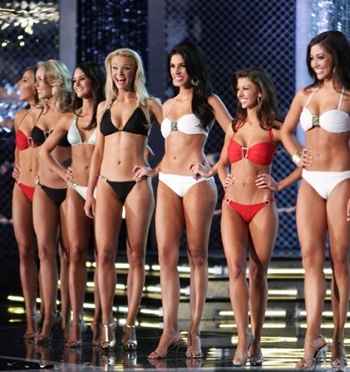 A friend posted on Facebook this morning that he’d just seen the Miss USA contestants on the Today Show and he can’t believe such an “archaic, demeaning and supremely sexist” thing still exists. Predictably, the men were quick to chime in with comments like, “It will exist as long as men enjoy watching beautiful women…and women enjoyed being watched” and “no body (sic) forces these ladies to be in these things. They want to do it. It is their freedom of choice.”
A friend posted on Facebook this morning that he’d just seen the Miss USA contestants on the Today Show and he can’t believe such an “archaic, demeaning and supremely sexist” thing still exists. Predictably, the men were quick to chime in with comments like, “It will exist as long as men enjoy watching beautiful women…and women enjoyed being watched” and “no body (sic) forces these ladies to be in these things. They want to do it. It is their freedom of choice.”
Perhaps equally predictably, I chimed in with: “Kinda like how nobody “forces” a woman to work as a prostitute/have sex on camera in pornographic films/stay in a abusive relationship, right? So long as men enjoy exploiting women … and women enjoy being exploited by them. Not demeaning or misogynistic at all, nope. Right-o.”
Because goddammit, I hate beauty pageants. No matter how much emphasis they try to put on scholarship and being smart and thoughtfully answering serious questions about world problems, there’s just no getting away from the fact that beauty pageants are first and foremost about putting the bodies of young women on display for men to judge as beautiful, or not. The fact that many of these young women have been training for tiaras since toddlerhood, honing and shaping themselves into some bullshit testosterone-driven sexual fantasy of the perfect Barbie doll woman, that they actually take this competition seriously and try to posit it as anything more than the purely misogynistic, hyper-sexualizing of the female body that it is, makes it that much worse. Why do we let beauty pageant standards define how our daughters have to look in order to be thought (or to think of themselves as) beautiful?
On the other hand, I admit that I don’t tend to feel the same about burlesque, in part because burlesque tends to celebrate a much wider spectrum of what constitutes female beauty, and in part because when I watch a burlesque show, it feels like watching women who are in active control of their sexuality, whereas beauty pageants seem to be just about passively offering female bodies up for display and ogling. I guess other folks might disagree, though, and find burlesque to be more exploitative because it’s inherently more sexual in nature than just parading around in a pageant.
10 Comments »Rebecca Black’s Friday (In Hell)
This needs to be edited about in half, but that aside, it’s still pretty awesome.
Happy Monday!
Getting Stripped
Very excited to share the news that my good friend John Wildman, formerly director of PR for the Dallas Independent Film Fest and current Senior Publicist at Film Society Lincoln Center, is finally getting his long-gestating “post-feminist” horror-thriller project, Stripped, off the ground. Initially planned to film in 2010, the film stalled out for a while over funding concerns but is finally getting made. I read a version of the script, which was co-written by Justina Walford, a couple years ago, and I’ve been hoping ever since to finally see it get made. Stripped will film in and around Dallas in June; you can read the complete press release right here.
RIP Adam Yauch
I hate words like “gone” or “departed” or even “passed on” for someone who’s died. Adam Yauch’s physical body may have expired too damn young, but his spirit and legacy live on through his contributions to the worlds of music and film. And isn’t that sort of immortality, that desire to create something that will exist long after our physical bodies give out, at least a part of why we struggle and work to create art to begin with?
Yauch was an inspiration. Let’s not wallow in tears at his death, but celebrate the life he lived and what he did with it. And then get off our asses and go lay down that album or paint that canvas, or finish that script and shoot that film, because this physical life is short, and time’s wasting.





